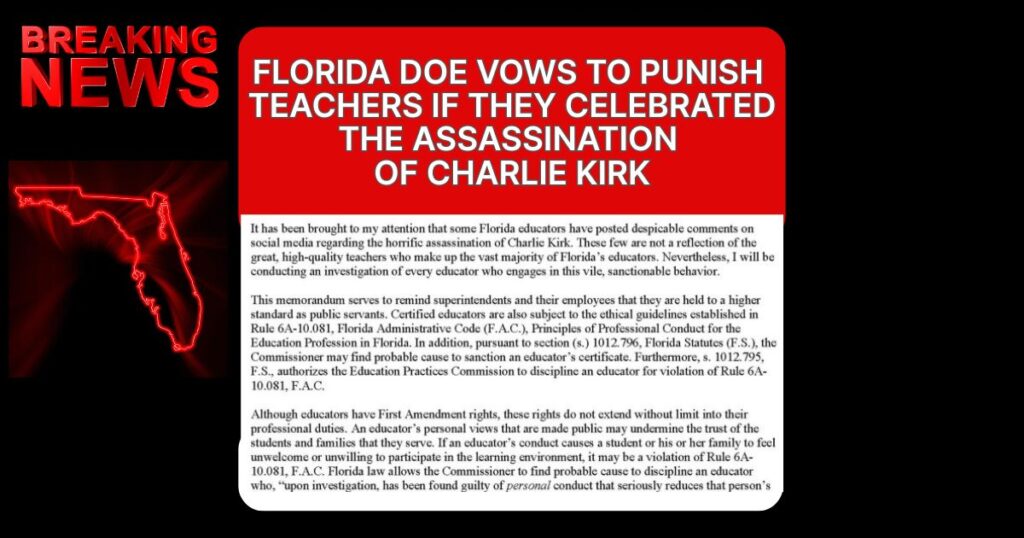The Florida Department of Education has issued a harsh warning to public school educators after a social media post by at least one teacher that appears to celebrate the death of conservative figure Charlie Kirk. Education Board member Anastasios Kamoutsas said disciplinary action, including revoking the educational accreditation, could continue for those found to be in violation of professional conduct.
Charlie Kirk, a well-known conservative activist, was assassinated while speaking at a university event in Utah. After his death, at least one Florida teacher is said to have posted rough or congratulatory messages about the murder on social media. In response, Commissioner Camoutes sent a note to all Florida school principals warning educators to avoid “despicable and sanctionable behavior.” He said social media comments, which amount to fraud, could undermine public confidence in the schools and require investigation.
The Florida Department of Education pledges to investigate “all educators engaged in this sleazy, sanctionable behavior.” The results may include suspension, termination, or revocation of educational certificates for those found to have committed fraud under state laws governing the conduct of teachers. The DOE reminded educators that these rights are “not without restrictions” while retaining the rights to free speech.
Gov. Ron DeSantis and Sen. Jennifer Bradley condemned the teacher’s alleged post, calling it “intrusive” and “unacceptable.” The Florida Education Association, which represents more than 120,000 teachers and school staff, argued that a legitimate process is essential and expressed concern that educators have been publicly condemned prior to formal investigations and findings.
This development touches on the important tensions between freedom of speech and professional behavior. Like all citizens, teachers have constitutional rights that include free expression, but when their official speeches can be linked to their role as educators, the state can impose restrictions, especially if it is possible to fulfill its duties and reflect its ability to maintain trust with students and families. Florida law approves disciplinary action if it is found that an educator’s personal actions significantly impede the effectiveness or integrity of the education system. The DOE memo shows that posts celebrating violent crimes can meet that standard.

The state’s DOE and local districts investigate suspicious cases. In Clay County, teachers have already been suspended in connection with famous posts. Depending on the findings, the Disciplinary Committee or Education Panel may hold hearings to determine appropriate sanctions. How Florida pursues these cases can set new precedents for how teacher speeches are regulated in situations involving political violence and controversial public figures.
The Florida DOE shows that it does not tolerate consideration of congratulatory remarks from educators regarding Kirk’s assassination. Teachers who find themselves crossed the line can face serious professional consequences. The case raises broader questions about the boundaries of freedom of speech, professional responsibility and public trust in education.


